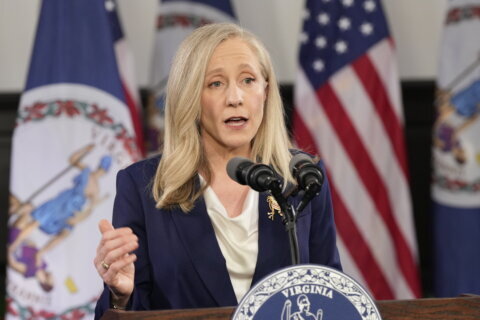Experts on human trafficking say the problem is all around us, and a yearlong study in Virginia has sparked several recommendations to combat sex and labor human trafficking.
The Virginia Commission on Human Trafficking Prevention and Survivor Support, formed last year by Gov. Glenn Youngkin, submitted its final report in January urging tougher penalties, as well as increased education and training for police, health care workers and teachers so that trafficked victims can be more readily identified.
“I think it’s really important for us to understand that human trafficking is now affecting every ZIP code in America … right now, we believe there are around 14,000 victims within the Commonwealth, about 1/3 of those being located in Northern Virginia,” said Brittany Dunn, of Alexandria, and founder and chief operating officer for Safe House Project and one of 18 members of the governor’s commission on human trafficking.
Human trafficking ranges from families exploiting their own children to criminal enterprises that traffic mostly women in the sex trade, including escort services and illicit massage businesses. However, the problem reaches deep into the labor force.
According to the Polaris Project, which operates a national human trafficking hotline, trafficked individuals can be found working in restaurants, factories, commercial cleaning services, hotels, construction, landscaping and in health and beauty services, such as nail salons.
“Labor trafficking is very prevalent, and we need to be aware in all these different settings how we can identify vulnerable individuals,” Dunn said.
Among the commission’s recommendations are stepped-up enforcement, shutting down illicit massage businesses and increasing the penalties for both the traffickers and individuals who solicit prostitution.
The panel also called for expanding partnerships with task forces working against internet crimes against children.
Another key recommendation is for the state to improve education and training so that law enforcement, health care workers, teachers and students can more readily identify victims of human trafficking.
The report also calls for increased funding to provide more resources, including mental and behavioral health for the recovery of victims.








